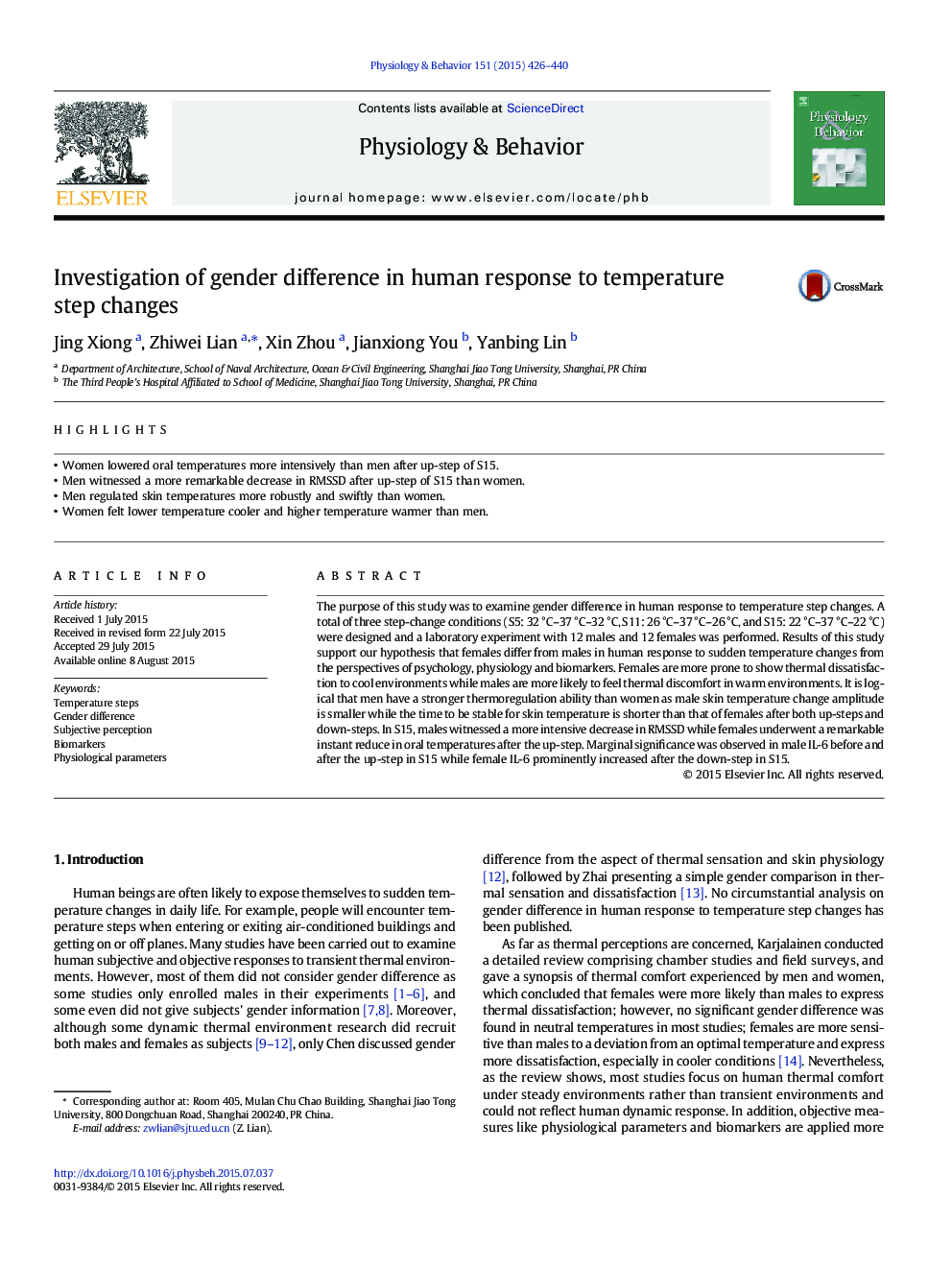| کد مقاله | کد نشریه | سال انتشار | مقاله انگلیسی | نسخه تمام متن |
|---|---|---|---|---|
| 5923323 | 1571166 | 2015 | 15 صفحه PDF | دانلود رایگان |
- Women lowered oral temperatures more intensively than men after up-step of S15.
- Men witnessed a more remarkable decrease in RMSSD after up-step of S15 than women.
- Men regulated skin temperatures more robustly and swiftly than women.
- Women felt lower temperature cooler and higher temperature warmer than men.
The purpose of this study was to examine gender difference in human response to temperature step changes. A total of three step-change conditions (S5: 32 °C-37 °C-32 °C, S11: 26 °C-37 °C-26 °C, and S15: 22 °C-37 °C-22 °C) were designed and a laboratory experiment with 12 males and 12 females was performed. Results of this study support our hypothesis that females differ from males in human response to sudden temperature changes from the perspectives of psychology, physiology and biomarkers. Females are more prone to show thermal dissatisfaction to cool environments while males are more likely to feel thermal discomfort in warm environments. It is logical that men have a stronger thermoregulation ability than women as male skin temperature change amplitude is smaller while the time to be stable for skin temperature is shorter than that of females after both up-steps and down-steps. In S15, males witnessed a more intensive decrease in RMSSD while females underwent a remarkable instant reduce in oral temperatures after the up-step. Marginal significance was observed in male IL-6 before and after the up-step in S15 while female IL-6 prominently increased after the down-step in S15.
Journal: Physiology & Behavior - Volume 151, 1 November 2015, Pages 426-440
